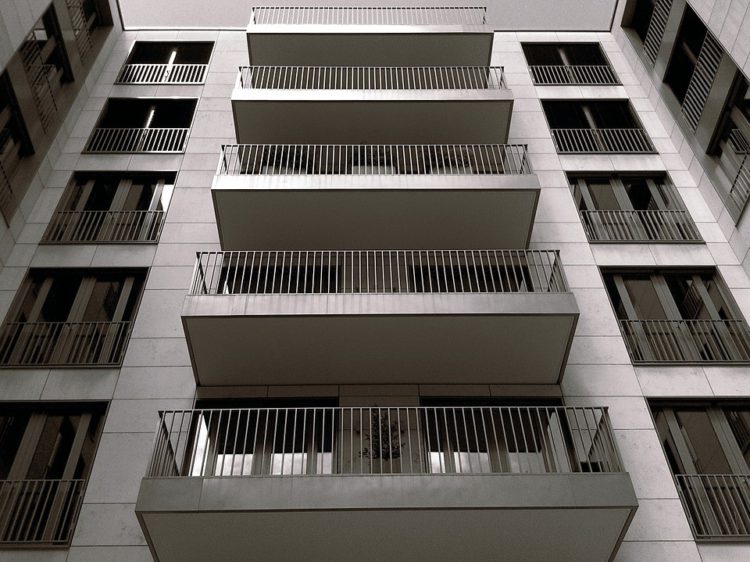Different Structure, Different Noise Level
2018-11-19
Housing in Japan
In this column, we’d like to share with you the information on the noise issue.
【Structure Influences Noise Level?】
Every building you see in town has different structure.
Wood, steel frame, reinforced concrete, etc. The structure of the building influences how easy it is for the noise to spread.
【Types of Sound】
There are two types of sound: structure-borne sound and airborne sound. Structure-borne sound is the sound which travels through solid bodies. In the case of buildings, that is the sound that spreads within the structure, such as the vibration from speakers on the floor or next to the wall, or vibration from elevators.
This type of sound turns into airborne sound the moment it touches air, and echoes. On the other hand, airborne sound is the sound which spreads only via the air, such as music or voices from your next-door neighbors. Low sound is harder to block than high sound, but airborne sound is relatively easier to block compared to structure-borne sound.
【Wooden Structure】

Wooden buildings are ideal for Japanese climate, because they allow air to pass through easily. They absorb moisture when it’s humid and relieve moisture when it’s not.
However, the smaller the mass of a substance is, the easier it is for the sound to spread. The disadvantage of wooden buildings is the spreading sound, because the mass of wooden structure is smaller than that of other structures such as reinforced concrete. When you’re in a wooden building, you’re more likely to notice your neighbors’ footsteps or the sound of your neighbor dropping things on the floor.
Wooden buildings usually have thinner walls, so you may often hear your neighbors talking or laughing. When I was a college student, I lived on the second floor of a wooden apartment, so I used to walk quietly for the person downstairs, and sometimes I heard my next-door neighbor laughing while I was trying to sleep. It’s all good memories now.
【Steel Frame Structure】

Steel frame structures are categorized based on the thickness of the steel frame.
First, buildings with steel frame of 6mm or thinner are called “light-gauge steel structure.” They are steel framed, so the sound is not so easy to spread, as the mass is larger than wooden buildings.
However, if you knock on the wall of light-gauge steel structured buildings and hear a high-pitched sound, the wall may be hollow. Normally, walls are covered with plaster boards on both sides, and sound insulator is put inside, but there are builders who skip this process to keep the prices down. If you think the rent of the apartment is too low for its quality, it’s better to be skeptical.
Secondly, buildings with steel frame of 6mm or thicker are called “heavy-gauge steel structure.” Their noise barrier performance is better than light-gauge steel structures. That’s because the thicker steel frame naturally makes the walls thicker. The larger mass also contributes to the better noise barrier performance.
Thirdly, reinforced concrete structure, which is commonly used for apartments. Concrete is poured into the steel frame structure, and the noise barrier performance is much better than wooden or other steel frame structures. Most people think that the walls are also made of concrete, but that’s not always true.
If you knock on the walls and hear a high-pitched sound, you need to be careful. When visiting the apartment, go ahead and knock on the walls. If you hear a high-pitched sound, the wall is probably thinner than you think.
Wooden, light-gauge steel, heavy-gauge steel, and reinforced concrete. That’s the order of how easy it is for the noise to spread. There is hardly no noise-proof apartment.
Even if you lived in a reinforced concrete building, your neighbor may be able to hear you if you make big noises, so no matter what structure the apartment is made of, we should all be considerate to our neighbors. We hope that now you have some idea on the characteristics of each structure.
【Our View】
Rent, room arrangement, distance from stations, and noise… It’s not easy to find a place that meets all of these criteria, so you may have to make a compromise at some point. The information you see on the portal sites are often not enough, so why don’t you talk to someone at your real estate agency?

